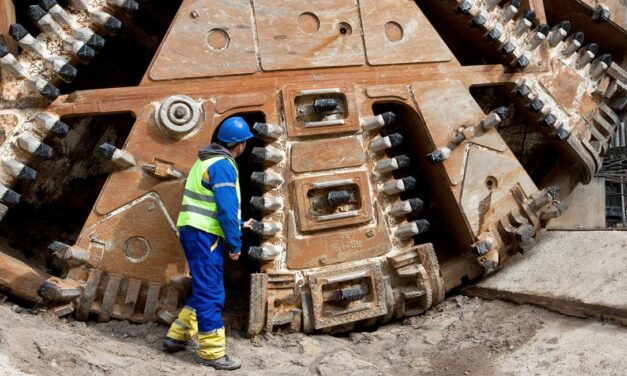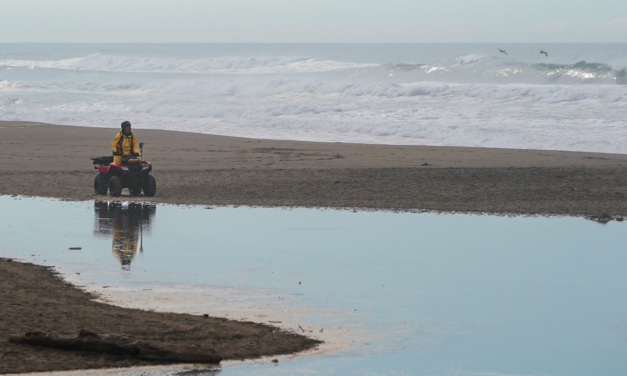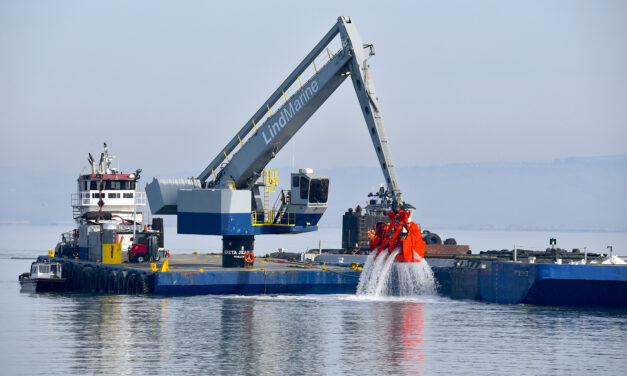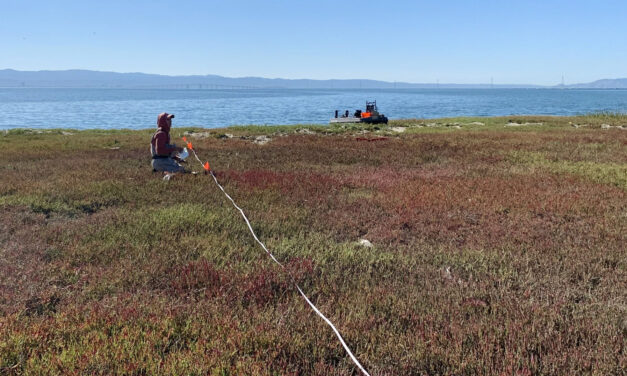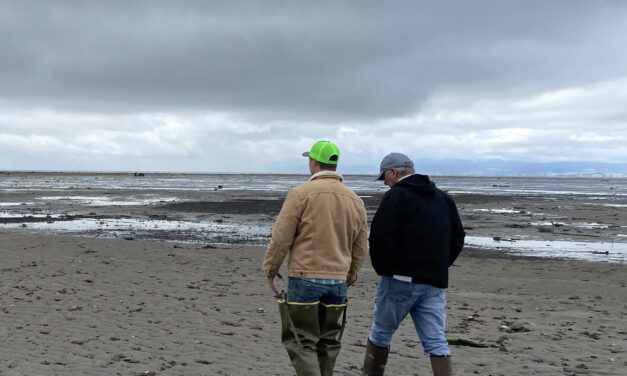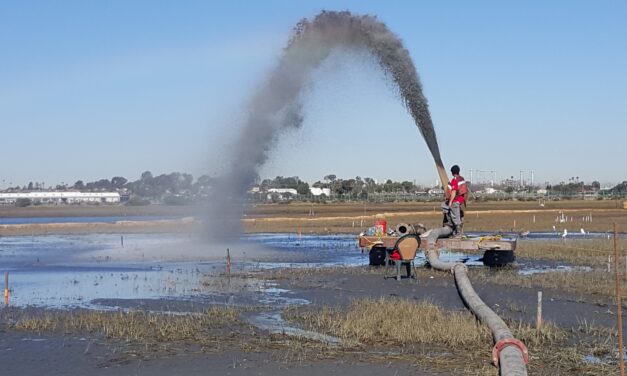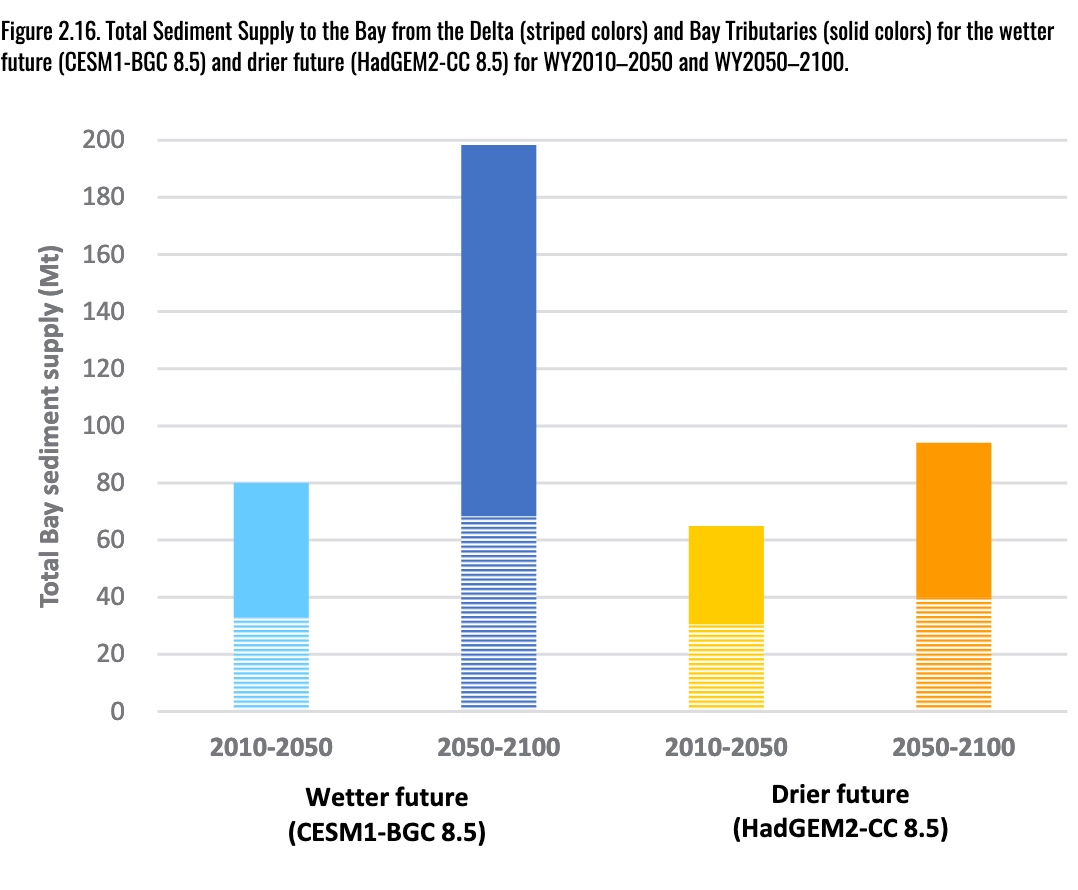Category: Sediment
Delivering BART Muck to South Bay Marshes?
Three million + cubic yards of tunnel muck from a subway extension could help raise South Bay marshes above rising sea levels.
Beach Loss Looms for the California Coast
Even though Dan Hoover’s been surveying the same stretch of San Francisco’s Pacific coast for 15 years on his ATV, it never looks the same. In summer it’s wider and in winter narrower. With El Niño the beach will erode more than ever.
Corps Experiments with Sediment Feed from Shallows
Can tides and waves move sediment placed in the shallows onto wetlands? The Army Corps is experimenting with how to do it.

All Stories
Boxes of Mud Could Tell a Hopeful Sediment Story
Scientists are testing whether dredged sediment placed in nearby shallows can help our wetlands keep pace with rising seas. Tiny tracers may reveal the answer.
Delivering BART Muck to South Bay Marshes?
Three million + cubic yards of tunnel muck from a subway extension could help raise South Bay marshes above rising sea levels.
Beach Loss Looms for the California Coast
Even though Dan Hoover’s been surveying the same stretch of San Francisco’s Pacific coast for 15 years on his ATV, it never looks the same. In summer it’s wider and in winter narrower. With El Niño the beach will erode more than ever.
Corps Experiments with Sediment Feed from Shallows
Can tides and waves move sediment placed in the shallows onto wetlands? The Army Corps is experimenting with how to do it.
Shores that Can Shapeshift AND Stay Put?
The region is obsessing over beach-building. Whether it’s a degraded salt marsh in downtown San Rafael or a sliver of wetlands near the old San Francisco shipyards, local practitioners are adding beaches as nature-based buffers against waves and rising seas to adaptation projects around the Bay.
Three Ways to Feed the Marsh
Seal Beach is drowning. As a result of sea-level rise, subsidence, and limited sediment supply, much of the 920-acre National Wildlife Refuge in Orange County can no longer keep its head above water. Pacific cordgrass, normally exposed at low tides, is being completely inundated. Rare nesting habitat for the endangered light-footed clapper rail is disappearing at high tides.
Enough Mud to Fill 670 Skyscrapers?
How much mud do we need to save Bay Area marshes from rising seas and how will we move it into position? If the future is drier there’s one answer, and if it’s wetter another (see chart), but the ballpark is 477,000,000 cubic yards. That’s the amount of sediment needed to sustain the ring of wetlands now protecting shoreline communities and infrastructure from a rising Bay, according to a new SF Estuary Institute report.







